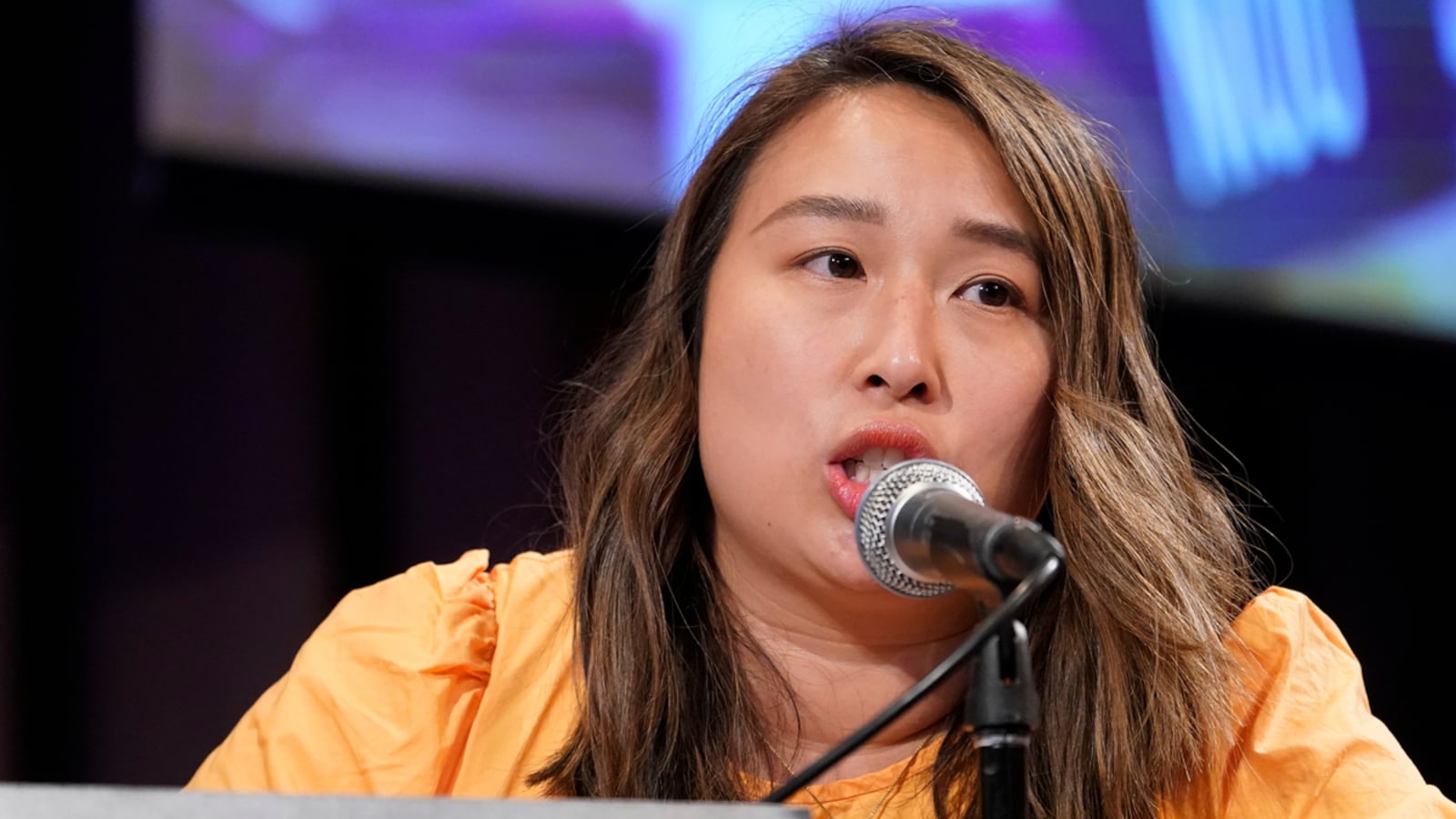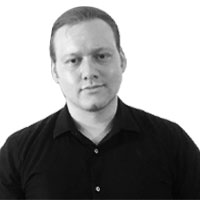A New York congressional candidate’s father played a small part in the biggest financial scandal of the past decade—at a time when the candidate herself was managing the family’s assets.
The massive Panama Papers leak of 2016 exposed more than 214,000 once-opaque firms and triggered prosecutions and political meltdowns across the planet. The trove of shady businesses reported by the International Consortium of Investigative Journalists included an entity called Tri-Stone Ltd., which, like the other covert companies uncovered, had as its agent the Panamanian law firm Mossack Fonseca—an outfit that the Central American nation’s attorney general labeled “a criminal organization that is dedicated to hiding money assets from suspicious origins.”
Like almost a third of the entities revealed, Tri-Stone Ltd. had its roots in China and Hong Kong. And, like almost half of Mossack Fonseca concerns, it was organized in the British Virgin Islands—an infamous tax haven and lockbox for corporate secrets.
But what marks Tri-Stone Ltd. apart is that it has not just a name but a U.S. address attached: Chorng-Shyr Niou, a longtime researcher and director at the Chinese state-owned Semiconductor Manufacturing International Corp., and a Seattle townhouse that served as home for his three children. One of those children, his eldest daughter Yuh-Line Niou, controlled his and his wife’s finances in America and signed the documents to acquire the property—and today, she is a candidate for the U.S. House of Representatives.
New York Assemblywoman Niou has represented Manhattan’s Chinatown and adjacent communities since 2017, having left the West Coast for New York City a few years earlier to pursue a master’s degree and a career in politics. She is now a contender in the Democratic primary for the Empire State’s new 10th District, presenting herself as a progressive alternative to Rep. Mondaire Jones, former Trump impeachment counsel Daniel Goldman, and City Councilwoman Carlina Rivera, among others, and earning herself the endorsement of the influential left-wing Working Families Party.
In a brief phone interview with The Daily Beast, Niou denied having ever heard of Tri-Stone Ltd. or possessing any knowledge of its activities. She acknowledged, however, that she and her two younger siblings were the main occupants of the Seattle address associated with the entity at the time of its incorporation, as her brother and sister attended college while she worked as a lobbyist in Washington State. Before cutting the call short, the lawmaker maintained her parents resided during that period at their property in Vancouver.

A company name plate is displayed next to the entrance of Mossack Fonseca & Co. (Asia) Limited in Hong Kong.
ReutersIt’s not clear what business purpose Tri-Stone served before it became inactive in 2013, and the campaign declined to discuss its purpose on the record. The British Virgin Islands’ records contain scant details, part of the archipelago’s appeal as a business base.
But in the months before her father established Tri-Stone in December 2007, Niou—then in her mid-twenties—assumed her parents’ power of attorney in both Vancouver and Seattle, which public records indicate allowed her to acquire the Seattle address her father used to found the firm. The power of attorney documents filed in King County, where Seattle is located, refer explicitly to this parcel. Further, Niou inked the mortgage to purchase the property on her parents’ behalf. The prior year, they had signed over similar authority to her for a property they owned in El Paso, Texas.
In all of these cases the documents her parents signed, which were subsequently filed with county authorities, were notarized at the American Consulate in Shanghai, where China’s Semiconductor Manufacturing International Corporation is based.
Offshore entities are a common tool for evading tax officials and official capital controls and for acquiring hard assets overseas, noted James Lewis, vice president at the Center for Strategic and International Studies.
“Rich Chinese people usually have two goals: 1) Get their money out of China (buying real estate is a normal trick for this), in case things go south with the Party,” the former diplomat wrote in an email. “2) Avoid paying taxes (not confined to wealthy Chinese).”
Bill Majcher, a Hong Kong-based investigator who tracks down money-launderers and tax-dodgers for corporate and government clients, concurred. A deep distrust prevails between the Chinese elite and their government, an after-effect of 20th century upheavals.
“If you generate wealth in China, you better figure out how to get it out of China,” the former Royal Canadian Mounted Police officer told The Daily Beast. “Whatever you have can be gone tomorrow. They trust very few people—they trust their family.”
Echoing other analysts, Majcher asserted that Hong Kong, where one of Tri-Stone’s agents is based, serves as a “laundromat” for scrubbing money flows from the mainland. One of the city’s colonial legacies is its history of English common law and connections to the dominions of the old British Empire. That includes the British Virgin Islands, which Majcher described as the preferred jurisdiction for avoiding the regulatory and fiscal reach of Beijing.
What is unusual about Tri-Stone, a third expert on Hong Kong corporate governance and corruption argued to The Daily Beast, is its connection to Mossack Fonseca. The company’s Hong Kong-based agent did not work for a well-known or even formally registered accounting firm, but its connection to the international corporate services provider would have been a key attraction for customers.
“The use of a Panamanian company is super-rare,” said the expert, who requested anonymity to speak freely. “Having them help would have been a selling point for the local affiliate.”
For decades, Mossack Fonseca was a favorite firm of members of the global ultra-elite, who sought to stash their riches in obscure jurisdictions out of view of both the public and the public authorities. Its brass eventually escaped conviction for money-laundering in Panama, but the operation—once the fourth-biggest provider of offshore legal and financial services in the world—nonetheless shuttered for good in 2018.
The 2016 leak was particularly humiliating for China, not just because of the density of entities linked to the country, but because the revelations implicated members of the Communist Party’s uppermost echelons: including relatives of China President Xi Jinping.
Public records and statements place both of Niou’s parents on the mainland in the lead-up to Tri-Stone’s creation, when their daughter took control of their U.S. assets. Between 2005 and 2009, Niou’s father was listed as an assignor for several patents SMIC filed in the United States while using an address in Shanghai. A corporate press release datelined in the Chinese megacity around the same time also identified Niou’s mother as an assistant director at the firm, while her father’s LinkedIn account identifies him as a senior director. Her mother seems to have subsequently gone to work as chief operating officer of a health-care conglomerate, but her and her husband’s LinkedIn profiles both place them in China. So do the documents related to the Seattle property’s sale in 2019, which were again stamped in the American consulate in Shanghai. Efforts to reach the elder Nious proved unsuccessful.
The U.S. government sanctioned SMIC in 2020 over alleged ties with China’s military, citing “evidence of activities between SMIC and entities of concern in the Chinese military industrial complex.” (SMIC has repeatedly denied these accusations.)

The SMIC (Semiconductor Manufacturing International Corporation) logo of a Chinese semiconductor foundry company.
SOPA Images/GettyThe campaign told The Daily Beast that both parents left SMIC long before the Trump administration levied sanctions against the company, and that they now reside in the United States. The semiconductor industry is a particularly prized operation for China, as it is key to China’s military-civil fusion doctrine and its plans to establish its military as the most technologically advanced in the world. There’s no evidence that Niou’s parents had any connections to China’s defense sector, aside from working for SMIC.
But it would be “highly unlikely” that employees of SMIC, and their families, would fly under Beijing’s radar, said Holden Triplett, the former head of the FBI in Beijing.
“Individuals working for companies in sensitive industries or industries important to the national security of China are very unlikely to not be known to Chinese security services,” Triplett said. “It becomes a matter of national security in China’s eyes.”
Lewis, of the Center for Strategic and International Studies, noted that the 2000s—when both of Niou’s parents worked at the firm—represented the heyday of U.S.-Chinese relations. SMIC’s leadership then consisted of talented technocrats with strong American ties, he said, not the Communist Party cadre embedded in its management today.
Nonetheless, he and multiple experts The Daily Beast consulted for this story agreed that it is the country’s privileged but closely watched upper crust who go through the costly and complicated process of setting up overseas entities out of Hong Kong.
“I saw this a lot in L.A. and Vancouver. It looks like the behavior of rich people,” he wrote to The Daily Beast. “That’s why the Panama Papers had over 200,000 listings.”
Before this story was published Niou’s campaign refused multiple requests to comment on the record. After publication the campaign took to social media to state the story was anti-immigrant and racist, though it did not dispute any facts this article raised.
“Yuh-Line has nothing to hide,” the campaign said on Twitter. “The Beast’s article falsely insinuates that Yuh-Line’s parents set up a shell company in order to quietly sneak money out of China.”
Her most recent campaign finance disclosures show her parents made a combined $11,600 max-out donation to her bid for Congress in June.







